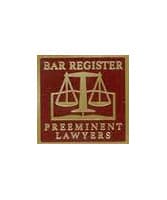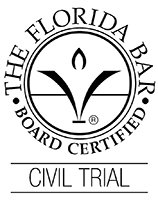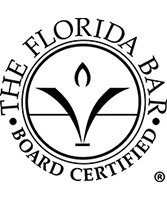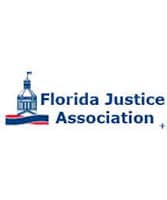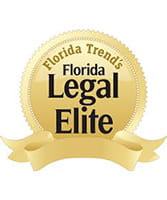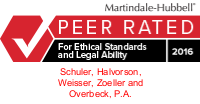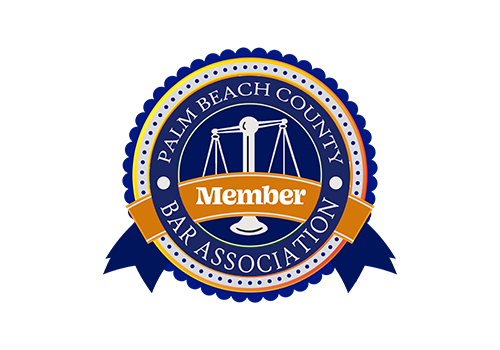West Palm Beach Multi-Vehicle Accident Lawyers
If you were the victim of a multi-vehicle car crash, contact Schuler, Weisser, Zoeller, Overbeck & Baxter P.A.. We’ll review your legal options and help you seek the financial compensation you need to cover your medical bills, lost wages, pain and suffering, other related expenses. We’ll help you fight for justice and hold the at-fault party liable for their careless actions.
When more than one car is involved in an accident, determining who’s to blame is difficult. We have the experience and resources needed to thoroughly investigate the accident and locate crucial evidence to prove fault. We can file an insurance claim or lawsuit against the liable driver for the maximum available financial award.
Our results speak to the dedication and resolve we bring to each and every case. To find out more about our legal services, call us at (561) 689-8180 to speak with a dedicated West Palm Beach multi-vehicle accident lawyer.
Why Do Multi-Vehicle Car Accidents Happen?
Multi-car crashes are often the result of a chain reaction. It usually starts with one person who makes an error or isn’t paying attention to what they’re doing. When that happens, they crash into one vehicle that crashes into another.
Eventually, there’s damage to multiple cars and injuries to more than one driver and passenger. Pileups are dangerous for everyone involved. They cause severe injuries and fatalities. Following are some of the common causes of multi-vehicle accidents:
Distracted drivers can cause an accident that causes multiple vehicles to end up in harm’s way. Common distractions include:
- Changing the radio
- Grooming
- Sending or reading a text
- Focusing on something other than the task of driving
- Following a GPS or map
- Drinking or eating
Speeding prevents motorists from being able to slow down or stop in time when the person ahead brakes for traffic congestion or a hazard in the road. The faster someone drives, the more distance they need to come to a complete stop. The impact of a crash when someone travels at excessive speeds can cause a vehicle to crash into another. It can cause multiple cars to block lanes that prevent other people from passing. If other motorists aren’t paying attention, they could end up in the pileup.
Poor weather conditions require people to adjust the way they’re driving. They might need to slow down or merge into the slow lane. Conditions such as snow, sleet, and ice, commonly cause multi-vehicle accidents. Someone who’s driving too fast for adverse weather usually can’t stop in time or maneuver away from a stopped vehicle, resulting in a chain reaction.
Driving under the influence of alcohol or drugs is illegal. It can impair a person’s driving abilities and prevent them from traveling safely to their destination. When someone is operating a motor vehicle with drugs or alcohol in their system, it may cause the following side effects:
- Impaired judgment
- Decreased coordination
- Slowed reaction time
- Drowsiness
- Blurry vision
- Reduced sensory perception
- Poor decision-making skills
Fatigued driving affects people in ways that are comparable to drunk driving. When you’re tired, your reaction time is slower, and you cannot make good decisions. If you don’t have complete control of your car, you’re more likely to crash into more than one vehicle as you’re navigating along the roadway. You could swerve into oncoming traffic or blow through a stop sign.
The Challenges of Settling an Insurance Claim When There Are Multiple Vehicles Involved
If you suffer injuries from a multi-vehicle accident, you can file an insurance claim for compensation. Unfortunately, the process could take longer than usual because of the following factors:
- Criminal case: If the at-fault motorist was impaired by alcohol or drugs, they could face criminal charges. While their case is pending, you shouldn’t settle your insurance claim. The outcome could impact the compensation you’re entitled to recover. Criminal cases could take years, which prevents you from collecting payment immediately after the crash.
- Multiple negligent parties: More than one person could have caused the accident. When that happens, the insurance company will need to investigate who should be liable for your damages. Some drivers don’t have auto insurance, while others don’t have adequate coverage to compensate you for all your losses. It can take time for insurance companies to determine fault and review all policies, which may impact your settlement amount.
- Statements from the at-fault party: Even when someone causes an accident, they might deny it during the insurance claims process. They could point the finger at someone else, prompting the insurance company to investigate. Even if you have evidence of another driver’s negligent actions, the insurance company must look into all possible causes.
- Lack of auto insurance coverage: Florida is one of few states that doesn’t require motorists to carry liability insurance. The no-fault system allows injured parties to file a claim with their own auto insurance company. Unfortunately, the minimum legal requirement is $10,000, which rarely covers the total damages incurred. If the at-fault driver doesn’t have insurance coverage, you’ll have to find other options to supplement your remaining expenses.
- Multiple accident victims: When there are multiple vehicles involved in a car accident, there’s often more than one person who suffers physical harm. There could be other drivers, passengers, pedestrians, and bicyclists that get hurt in the crash. The at-fault driver’s insurance won’t cover everyone’s losses. Finding another source of compensation could take extra time.
Damages You’re Entitled to in an Insurance Claim
Florida drivers must purchase personal injury protection (PIP) with a $10,000 minimum limit. You have the option to purchase higher coverage when you sign up for your policy. PIP pays upfront for medical treatment for up to 80% of the available limit. When you see your doctors, you can provide your PIP insurance details so they can submit your bills to the insurance company for payment. You won’t have to pay out of pocket for appointments.
PIP will also cover up to 60% of the limit for lost wages. Lost wages result from the income you’re unable to earn because your injury prevents you from returning to your job. The insurance company will provide a form to fill out that lists your employment information and proof of lost wages. As long as you have available coverage, you’ll receive compensation while you’re out of work.
Under certain circumstances, you can file a claim with the at-fault driver’s auto insurance company when your PIP coverage runs out. Liability insurance provides compensation to victims for the losses associated with an accident and injury. There’s a serious injury threshold you must meet to be eligible:
- Permanent physical disfigurement or significant scarring;
- Permanent physical damage other than disfigurement or scarring;
- Permanent loss of a vital bodily function; or
- Death.
The damages you can seek in a liability claim include:
- Medical bills
- Pain and suffering
- Out of pocket expenses
- Emotional trauma
- Lost wages
- Vehicle repair costs
- Diminished quality of life
- Permanent disability
You should never admit fault after a multi-vehicle car crash. Florida follows a pure comparative negligence rule. It reduces an injured individual’s damages proportionate to their percentage of shared blame. For example, if your total damages are $100,000, but you’re 20% at fault for the accident, you’re only allowed to pursue a maximum of $80,000 in compensation. Under normal circumstances, you would be entitled to the full $100,000.
How to Handle a Lawsuit Against the At-Fault Driver
If you want to sue the other driver for compensation, you must follow the statute of limitations. It’s a strict deadline for pursuing legal action against another party in the civil court system. The statute of limitations for car accidents in Florida is four years. That means you have four years from the accident date to file your lawsuit.
Multi-vehicle crashes are usually the result of negligence. The legal theory of negligence refers to one party’s failure to use reasonable care to prevent another party from harm. If you want to use this theory as the basis for your lawsuit, you must prove the following five elements:
- Duty: The at-fault driver owed you a reasonable duty of care;
- Breach of duty: They breached their duty;
- Cause in fact: You wouldn’t have suffered harm if it wasn’t for their actions;
- Proximate cause: Their actions, and nothing else, were the direct cause of your injuries; and
- Damages: You incurred damages from the accident.
You can pursue damages, such as medical bills and emotional trauma, but also have the opportunity to seek punitive damages. Instead of compensating you for your losses, it’s intended as a punishment of the negligent party and aims to deter similar misconduct in the future. Recovering punitive damages is challenging. You need to provide the jury with clear and convincing evidence that the defendant acted with:
- Gross negligence: The party’s actions were reckless and lacked regard for another person’s life, rights, or safety; or
- Intentional misconduct: Despite knowing that their actions could harm someone, they pursued the wrongful misconduct anyway.
Contact Us
Schuler, Weisser, Zoeller, Overbeck & Baxter P.A. has an experienced legal team that will work hard to win your case. We’re available 24/7, so you can reach us when you need us most. Our West Palm Beach car accident lawyers will help you fight for the justice you deserve.
We know the devastating impact a car crash can have on someone’s life. When you’re in pain and struggling to recover, the last thing you want to deal with is a legal case. We’ll relieve your burden and handle every step of the process for you. You’ll receive the legal services, guidance, and support you need to get through this overwhelming experience. Call Schuler, Weisser, Zoeller, Overbeck & Baxter P.A. at (561) 689-8180 to schedule your free consultation.



